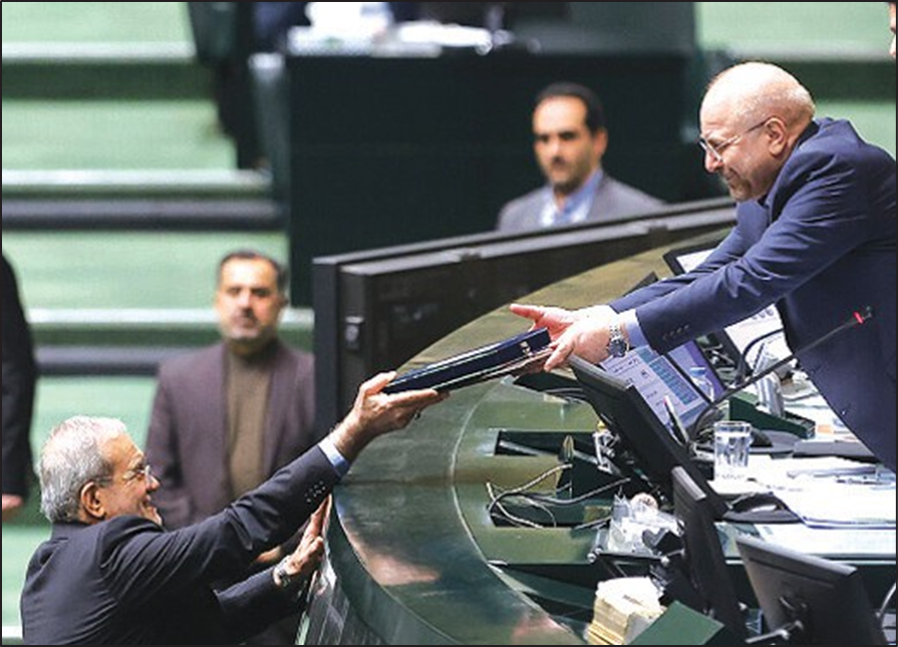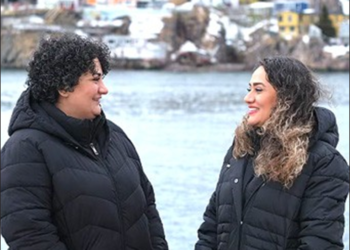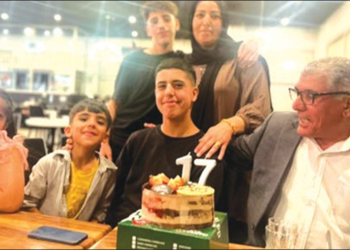college graduation in Virginia turned into a solemn vigil for her father in Iran.
Kamran Mortezaei Farid did not call his daughter from Tehran as promised after her May 21 commencement ceremony from George Mason University in Fairfax, Virginia. That was because he and 15 of his Baha’i colleagues had just been arrested.
While no announced charges have been lodged against them, it is assumed Mortezaei Farid and the six still remaining in detention are being held because they had been providing higher education to Baha’i students. The daily Kayhan said the allegations were that they had “secretly established a virtual university.”
When the Islamic revolution called for Baha’i professors and students to be expelled from universities, electrical engineer Mortezaei Farid helped found an underground educational system for Baha’i students.
The program evolved by the late 1980s into the Baha’i Institute for Higher Education (BIHE). Rather than continuing to hold classes in private homes or via correspondence, many are now being taught online. Although the Institute is not recognized by the Iranian government, many of the thousands of BIHE-educated students have been accepted into foreign graduate programs.
“It’s just to gain knowledge, and then go to school outside Iran,” Tiana Maleki, 29, a former BIHE student now in the US, told The Washington Post.
Kamran Mortezaei Farid, 58, was among the first BIHE instructors and is now its director. “From the very beginning, he was there, and he would say: ‘This is my responsibility. I don’t want to leave something unfinished. This is my thing in the world that I want to do,’” said his sister, Jaleh Mortezaei Sadeghzadeh, who lives in Virginia.
“The only thing he ever bought for me, for birthdays and everything, was books,” said his daughter, Mahtab. “It’s so important to him. It’s just the major thing. I feel like doing this is his mission in life.”
Mahtab, 26, told The Washington Post she does not always support her father’s continued work. “I’m not selfless like he is,” she said. “I have been wanting him to come here and be with me. Not that I don’t honor what he’s doing, but lately I’ve been telling him that maybe it’s time to pass it on to someone else, that maybe it’s time to come spend time with his family.”
Nevertheless, standing at her graduation, his decisions made sense to her. “When I was standing up there, I was thinking about it — that I had the chance to come here, and so many people who are much smarter than me for sure and who wanted this even more than I did are stuck there [in Iran],” she reflected. “I kind of had the sense of being proud of him for helping that happen somewhat for other people.”
Mahtab came to the US with her mother at the age of 18 to pursue her dual degree in psychology and neuroscience.
There are about 170,000 Baha’i followers currently in the United States and about 5 to 6 million around the world. In Iran, an estimated 300,000 Baha’is remain.
While Mahtab’s graduation party was meant to be a celebration of her accomplishments, it instead became a vigil for the Baha’is in Iran—and particularly her father. Sharing poems and prayers, everyone admitted they were not surprised at the arrests. “I expected it,” said Jila Tahmasebi, Mahtab’s mother. “We know that Baha’is don’t have any rights in Iran, so all of us expect that. Even if we don’t do anything wrong, they can arrest us.”
The glimmer of hope for the Mortezaei Farid family came in a voicemail on Mahtab’s phone from her father earlier this week. “It was kind of heartwarming, because his voice wasn’t shaky. He sounded pretty strong,” she said. “He said, ‘I love you,’ and he sent kisses.”
In spite of the arrests, BIHE classes have reportedly continued.



















